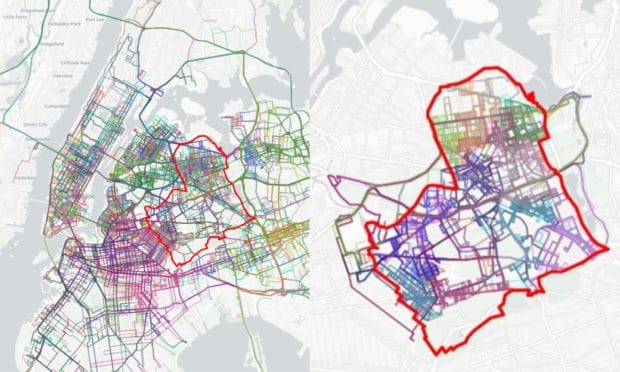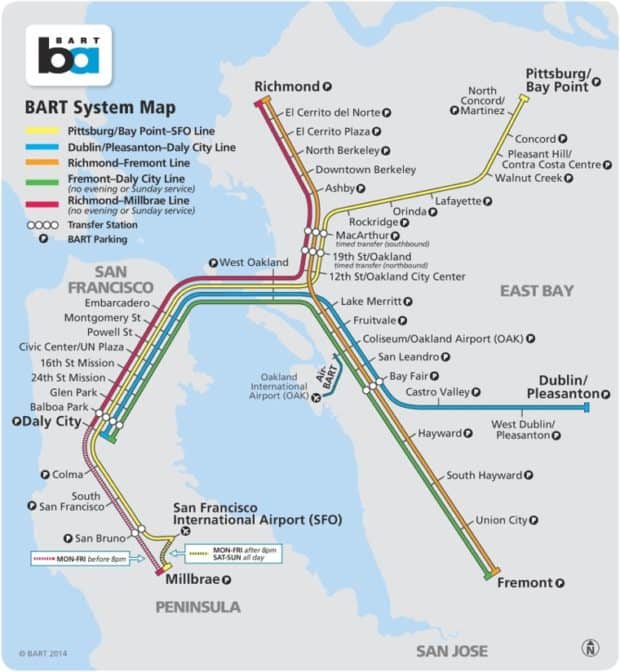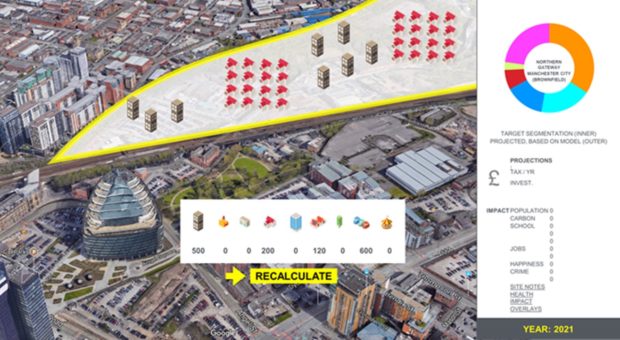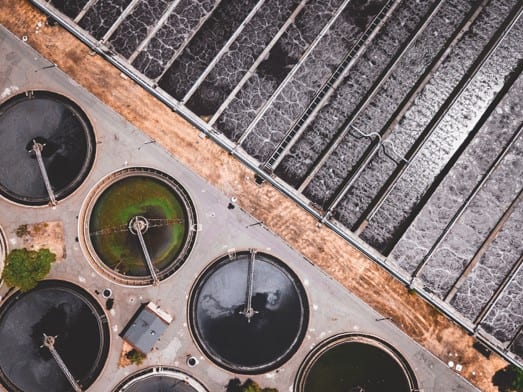The challenges facing cities in the 21st century are greater than ever. A new focus is required to overcome the emerging social, technological, economic, environmental, and political forces exerting pressure on cities. This new focus must address how to create cities that are sustainable– for citizens, for business and for the environment.
Tackling this issue head on, Arcadis has developed a Vision 2030 plan that sees new platforms, capabilities and domains operating in cities– with citizens at its core.
According to the Arcadis Sustainable Cities Index 2018, “Sustainable cities can be thought of as places that are planned and managed with consideration for social, economic, environmental impact, providing a resilient habitat for existing populations, without compromising the ability of future generations to experience the same. Accordingly, measures of sustainability need to be able to measure current city performance, ability to mitigate future impacts as well as investment in future capability– ideally measured from the perspective of the citizen.”
Data– and how we analyse it– is the game changer. Data provides the tools to plan, develop and construct cities in which citizens can thrive in harmony and order. Advanced analytics allow organisations to think differently, using data to uncover trends, insights, and even unearth hidden problems. The results allow cities to plan for the future and budget more effectively, leading to stronger end results.
Arcadis is working with organizations in cities across the globe to co-create solutions to their unique challenges, and develop sustainable new models that will improve the quality of life for their citizens.
New York: Reducing Traffic & Carbon Emissions
New York City has committed to reducing commercial waste disposal by 90% by 2030 as part of its “One New York: The Plan for a Strong and Just City”. We have been working with the New York Department of Sanitation (NYDS) to introduce reforms to optimise its commercial waste collection. The improvements will result in cleaner and safer streets, improved air quality, and a more efficient commercial waste collection system, all of which will advance the City’s zero waste goals. Advanced data analytics provided the evidence for authorities to make informed decisions for a better system across the five boroughs.
Our research of 9,900 routes revealed multiple commercial waste haulers covering the same routes, driving on average 123 miles each day. This resulted in long shifts (15+ hours), and created related safety concerns for drivers and citizens– including fatalities.
The team analysed the routing data, customer locations and haulers’ behaviour at a granular level and simulated a variety of options.
The result: Arcadis recommended a strategy for a zoned system with a limited number of haulers in each. This approach would provide a modern commercial waste collection system that would reduce waste disposal-related traffic by 60%, and CO2 emissions by 500 tonnes a year.
San Francisco: Managing BART’s Assets & Creating 15-Year Work Forecasts
SEAMS, an Arcadis company, has been working with Bay Area Rapid Transport (BART) since 2017 to develop a network renewal optimization model using SEAMS’ Enterprise Decision Analytics (EDA) software. The model predicts the changing condition of every asset on the BART network, from the rolling stock and track assets, to staff vehicles and computer terminals. It can account for the impact of the introduction of a new fleet of trains, new signalling systems, the construction of line extensions and the associated disposal of legacy assets to deliver the best overall network plan.
The value of this model is in its ability to identify the optimal mix of asset renewals to deliver the best overall reduction in network risk, whilst complying with the highly complex funding rules imposed on BART. EDA is currently the only solution that has proved powerful enough to achieve this.
The result: the model allowed the client to account for the impact of introducing of new assets, identify the best overall asset investment plan to manage the overall system risk, and create detailed work forecasts for the next 15 years.
Manchester: Fighting the UK Housing Crisis With Data-Driven Investment
Greater Manchester Combined Authority (GMCA) has a problem: the UK Housing Crisis. It is enormous in scale and recognizable in cities across the UK, and beyond.
GMCA has a target to deliver 10,600 new homes each year for the next 20 years, and they are currently set to deliver 7,900 in 2018. They also need to make sure they are the right types of housing (20% must be “affordable”), on the right type of land (brownfield vs green belt), in the right areas, with the right infrastructure and investment from the right developers. The existing process to marry these demands is complex and time-consuming; it also involves multiple teams, datasets and approvals.
Arcadis has been working with GMCA (using our “design thinking” approach focusing on the end-user) to co-create City Analytics, a solution that provides GMCA with a platform to support data and evidence-based decision-making by utilising a mix of land, building, commercial and geospatial planning data to demonstrate and model the impact of planning decisions across a range of assets and variables.
The result: The platform has the potential to create robust and defensible plans and to guide investment across regions to build more of the type of homes we need. By breaking down the siloes and integrating data held across GMCA’s 10 districts– alongside publicly available data and external providers and companies– and presenting the data with a simplified interface, processes have become more consistent and streamlined.
Northumberland: Optimizing Investments to Provide Better Value to Customers
Utilities companies are under enormous pressure to provide high-quality, uninterrupted service to their customers. SEAMS’ work with Northumbrian Water Group (NWG) is helping them to optimise and plan for better investment. SEAMS have helped NWG achieve their aim of embedding an in-house analytical and modelling capability to ensure data-driven decision-making became business as usual, reducing dependence on external contractors.
SEAMS worked side by side with NWG to train the team over the course of five years. The first model focused on clean water infrastructure assets, predicting the forward investment needed to maintain service levels for customers including bursts, interruptions and repairs on assets. In the second exercise, a waste water model for their gravity network was developed, which helped NWG understand the impact of sustainable, long-term investment over 25 years on collapsed sewers, blockages, flooding and pollution.
Through the co-creation of these models, the internal team now has the skills to complete a full range of services including data infill, probability of failure analysis, performance analysis, quantification of deterioration, whole life cost modelling and investment scenarios.
The results: NWG are empowered to optimize their investments and provide better value to customers. Analytics and modelling– a key part of their planning process– have improved their decision making, and they are investing in the right assets at the right time.
Tools For a Sustainable World Today, and Tomorrow
Data analytics allows us to maximise the power of the data at our fingertips. Simulating models and demonstrating outcomes enables us to help our clients make the most informed, data-driven decisions with the ability to track performance on their our long-term goals.
The methodology applied in these examples proves that through standardized data collection, cities have the tools to measure, monitor and improve their performance, creating sustainable environments that will improve the quality of life for us all.





